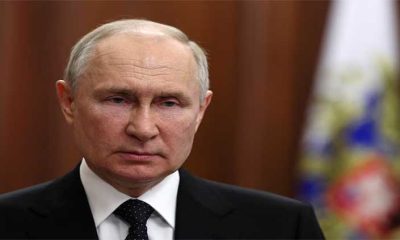Tech
Instagram reinstates Robert F. Kennedy Jr. amid presidential bid launch

Tech
WhatsApp to launch file sharing feature without internet
WhatsApp to launch file sharing feature without internet
Tech
Flame-throwing robotic dog unleashed for sale in US
Flame-throwing robotic dog unleashed for sale in US
Tech
US military stage world’s first ever AI controlled warplane
US military stage world’s first ever AI controlled warplane
-

 Fashion3 months ago
Fashion3 months agoAmi updates bourgeois styles for fall runway show at Paris Fashion Week
-

 Sports3 months ago
Sports3 months agoSon and Bissouma ready for Spurs game with Brighton
-

 Sports3 months ago
Sports3 months agoSinisterra signs long-term deal with Bournemouth
-

 Fashion2 months ago
Fashion2 months agoGiorgio Armani catwalk blooms with florals at Milan Fashion Week
-

 pakistan3 months ago
pakistan3 months agoECP convenes emergency meeting today
-

 World3 months ago
World3 months agoNorth Korea tests underwater nuclear drone, criticises US-led joint drills
-

 pakistan3 months ago
pakistan3 months agoECP rejects Salman Akram’s plea for PTI affiliation
-

 Tech3 months ago
Tech3 months agoBMW is testing humanoid robot to automate manufacturing tasks




















